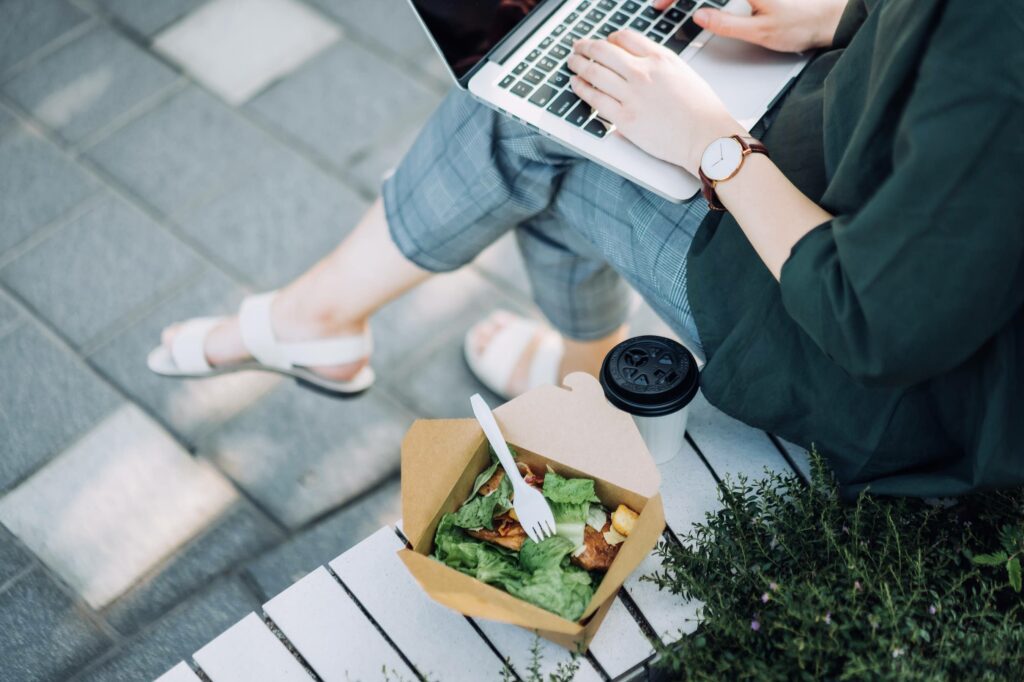COVID-19 and your finances – focusing on the important things
Just over a year ago, all our lives were turned upside down by an unprecedented health crisis. Since then, COVID-19 has made many of us focus on the important things, both in our personal lives and financially.
Shocks foster the emergence of exciting, innovative sectors, so economists tend to see them as opportunities to transform the economy. What if we thought about the pandemic in the same way? What if this is the perfect chance for us to rethink how we manage our budgets and savings, to direct our money towards what really matters for a better quality of life in the future? myLIFE is here to help you do just that.
Be flexible with money
When a crisis strikes, it’s important to take a step back and reconsider what is truly essential, for ourselves, for our family, our household, our finances, and for our quality of life. In its behavioural finance series, myLIFE has regularly pointed out that many of the financial mistakes we make are down to our unfortunate tendency to live in the present and not look to the future.
We like to procrastinate. We know we should be setting money aside for the future, getting our finances under control and finally getting those nagging works done, but again and again we put it off until tomorrow. And why? For convenience – the here and now is comfortable, familiar, and this tends to stop us making changes that will affect our lives in the future. But then COVID-19 arrived.
Our peaceful, pleasant pre-pandemic routine changed in the blink of an eye, and so too did our spending habits and our relationship with money. No more meals out, no more shopping trips with friends, no more jetting off on weekend city breaks.
With these leisure activities taken away from us, we were forced to focus on the more important things and on our immediate surroundings. And as the crisis went on, many of us began to adapt and change our attitudes to money.
A McKinsey study from September 2020 reported that more than a third of Europeans are now trying to save more for the future after being “forced” to do so early on in the pandemic. And 27% of respondents stated they would be seeking out more ethical and affordable goods than those they used to buy without thinking before COVID-19. With our crazy consumption habits stopped in their tracks, we came to realise that we had lost sight of what we had been working towards.
Of course, this new way of life may seem rather dull. Maybe for you the return to normality can’t come soon enough. But try and think about it another way: never again will we have such a great opportunity to transform ourselves and our relationship with money. We can have “happy money” and stop being a slave to our mental accounting.
Mental accounting is the term used for the process of allocating specific funds to various household spending categories, the aim being to prevent outgoings getting out of control. Yet the process does have its downsides. One is that it goes against the fungible nature of money: one euro is one euro, regardless of how or where you spend it. And excessively strict mental accounting might force you to borrow money for a holiday even though you have an unprofitable savings account containing all the funds you need for that trip.
COVID-19 has not only shaken up the reality of our spending – it has also obliterated our mental accounting.
COVID-19 has not only shaken up the reality of our spending – it has also obliterated our mental accounting. By spending less on eating out and trips away and reducing other non-essential outgoings, we’ve been able to save more and reassess our expenditure.
From now on our holiday plans will have to be left to the last minute and will depend on the current health situation. But at the same time we’ve got more money available to take the whole family away. And ultimately, the trip might even fall through. But being flexible means you can then use that money for home improvements or some nice new landscaping.
Whichever way we look at it, flexibility will be key post-COVID-19. But that’s OK. Don’t think of it as meaning a complete lack of control and plans – see it as an opportunity to be flexible and a chance to adjust your spending, your savings and your plans as necessary. And most importantly, always have a clear vision of what is important for you.
Deciding what the important things are – three simple steps
How do we decide what really matters and what truly makes our lives better? In behavioural economics, it’s acknowledged that most people have trouble planning for the future, and in particular cannot comprehend the reliability and stability of their future preferences. That’s why we draw a distinction between declared preferences and revealed preferences. To understand these concepts, let’s look at a rather timely example.
Example
You’ve always said that for you to have a good life you needed to live in the centre of town, close to the shops, your office and the kids’ school, even if that meant living in a smaller place. That is your declared preference.
But the world has changed. During lockdown, this small, central flat was where you lived, worked and home-schooled your kids. You’re going to be working from home more from now on, and the flat is too small for you and your family to have a good quality of life in the long term. It just isn’t working for you anymore, and the simple truth is that you need more space. That is your revealed preference. You realise it’s time to start looking for a bigger apartment, maybe even a house with a garden. You’d be further out of town, but how often do you venture into town now given the restrictions and closures? And for a similar budget, you can prioritise other things like living space.

Shocks like COVID-19 help us focus on what is making us happy right now. They let us distinguish between what we think we want and what we actually need.
We generally find it very difficult to differentiate between these two types of preferences. Shocks like COVID-19 help us focus on what is making us happy right now. They allow us to better gauge how beneficial our current way of life is and to distinguish between what we think we want and what we actually need.
Identifying our genuine preferences will require flexibility. Rejig your life in this new world by adopting our three-pronged approach.
1. Tweak your savings goals
Since lockdown began, many of us have managed to save more money than we used to by recalibrating our expenses to focus on the important things. This is a great start. As the pandemic continues, don’t feel guilty if you have to draw on those savings to tide you over if you lose your job or your income drops. Savings are there to help if we need extra money quickly – this happens from time to time and is just a normal part of life – but it’s important to use them carefully.
Conversely, if you have pretty much all the money you need to cover unexpected outgoings or if you’ve received tax credits or additional support, try not to draw on these funds too much. Nobody knows when the crisis will end, or what long-term impact it will have.
And remember that money is a means, not an end in itself: identify the important things and figure out what you can use this money for.
2. List non-essential spending to avoid in the long run
What changes did you notice during lockdown? Did you stop buying your daily takeaway coffee? Have you spent less on clothes you don’t need? How much have you driven those cars sat on your drive? Now’s the perfect time to look at your bank statements for the last few months and discuss your family’s revealed preferences. For some, a streaming service subscription will be essential. Some will want a significant budget for books. And others might want to install a fully equipped home gym or sign up to online fitness sites.
Preferences may have a significant impact on your budget choices. For instance, not being able to eat out might have shown you how much you love cooking at home with the family. If that’s the case, then it would make more sense to think about getting a new kitchen rather than upgrading your car. The key thing is to figure out what genuinely makes you happy.
Tweak your budget and separate the must-haves from the nice-to-haves. Log on to your online banking service and compare your current outgoings with your pre-pandemic spending. Don’t think of this as a strict budgeting exercise – see it as a way to gradually shape your actual life plan.
3. Switch to Plan B in times of need
Whatever you decide, remember that we still don’t know when the COVID-19 crisis will be over, so flexibility is crucial. It’s essential to have a Plan B in case something unforeseen happens, like you lose your job or your personal finances take a hit. How many times have we heard the phrase: “Hope for the best, prepare for the worst”?
Why not take inspiration from sectors that are “used to” dealing with crises? In aviation, Plan B’s are fundamental and take the form of checklists. Despite all the safety measures, aeroplanes can still run into problems during a flight, like an equipment malfunction. But most incidents are solved without issue. And that’s because pilots are able to keep a cool head and calmly run through their checklists to correct the problem.
So, be the pilot of your finances – draw up a checklist showing expenses you can quickly jettison, and anything you could sell to help you weather the storm. What about that second car that’s now just gathering dust in the garage? Are there any online services you rarely use that you could unsubscribe from? Or how about a cheaper mobile phone plan? Make sure your mind is clear when you’re working on your checklist.
The key thing is to write your Plan B before problems arise, because when they do, the negative emotions they create can cloud our judgement. Pilots know their fault-correction procedures by heart. But they still take out their checklists and read them to make sure they act rationally and objectively.
There’s no question that we are living through challenging times. But you should now be armed with all the tools you need to get through them. Remember to stay flexible, focus on what really matters for your family, and don’t wait for an issue to arise before deciding how to deal with it.


 Mortgage
Mortgage Personal loan
Personal loan Savings
Savings